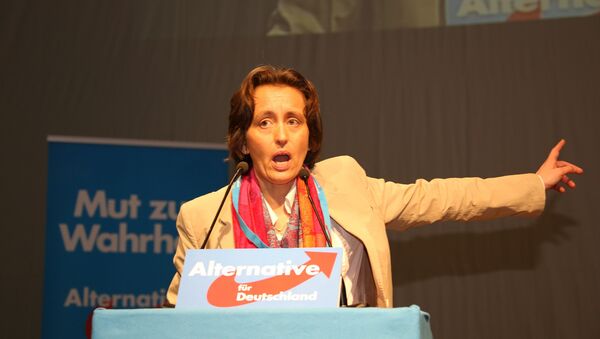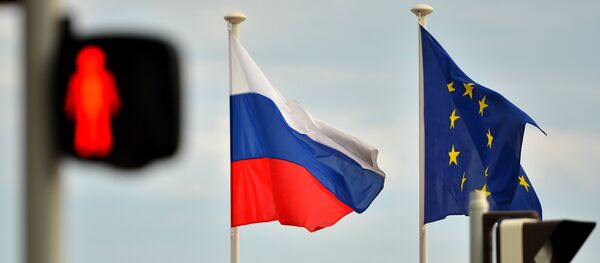Earlier in the day, the Council of the European Union, which groups the 28 EU member states, formally prolonged economic sanctions against Russia for another six months over the alleged lack of progress in the implementation of the Minsk accords on Ukrainian settlement.
“The sanctions are a part of a foreign policy that is bigger than just the Minsk II agreement. The governments of the member states are putting the European project before economic sense, 'more Europe' is more important than jobs of citizens of the member states which are hurt by the sanctions,” von Storch said.
“To continue the sanctions is to continue a failed policy that historically has proved very ineffective… This is a regional issue that we cannot win. Whenever the European Union and the United States raise the stakes, the Russians will simply go higher. If we do not put a stop to our interference this will end badly for everyone,” the lawmaker warned.
The European Union, along with the United States, continually prolongs sanctions against Russia, imposed after Brussels and Washington put the blame for the eastern Ukraine conflict on Moscow and refused to recognize Crimea’s rejoining Russia as a result of the March 2014 referendum. Moscow has repeatedly refuted the allegations and in August 2014 introduced retaliatory restrictions on food imports, which were prolonged until the end on 2017.




